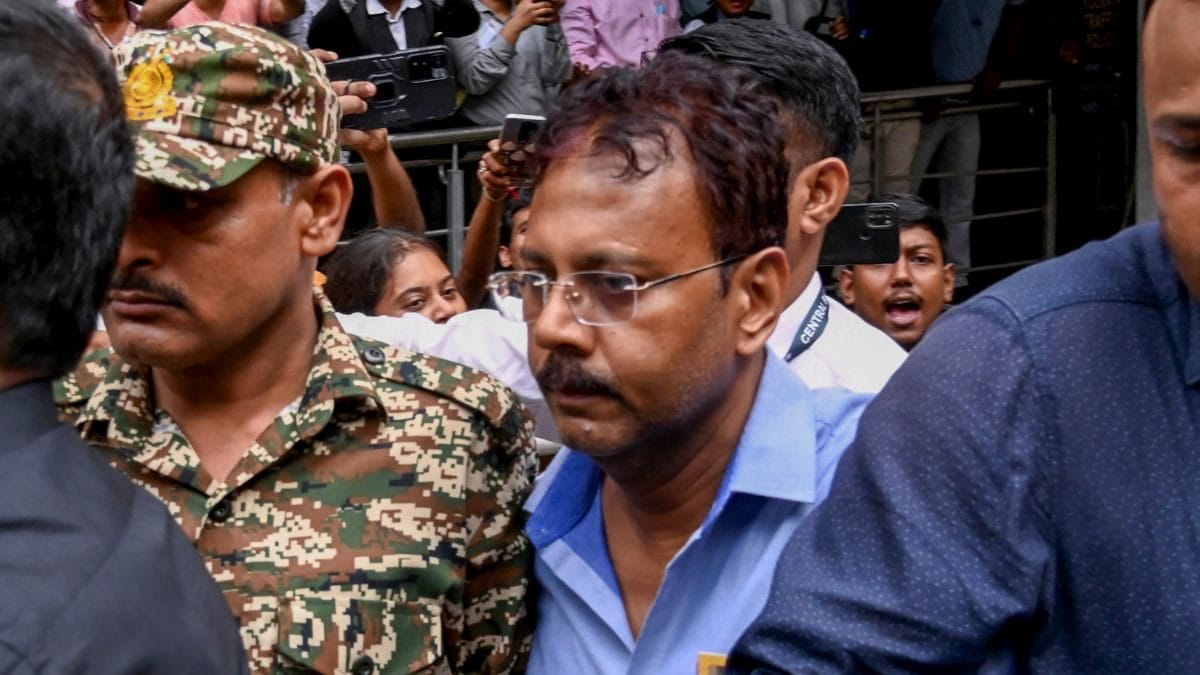The Central Bureau of Investigation (CBI) is investigating the alleged financial irregularities and the rape and murder of a doctor at Kolkata’s RG Kar Medical College and Hospital. The agency has accused the ex-principal of the college, Dr. Sandip Ghosh, of corruption and abuse of power during his tenure. This article will explore the details of the CBI’s investigation, the allegations against Dr. Ghosh, and the potential impact of these findings on the healthcare institution.
The CBI’s Investigation: Unveiling the Alleged Corruption
The CBI investigation into the alleged financial irregularities and the doctor’s death has uncovered a complex web of alleged corrupt practices involving Dr. Sandip Ghosh. The agency has submitted its findings to a special court, alleging that Dr. Ghosh deliberately corrupted the recruitment process for medical house staff and awarded contracts to his close associates, disregarding the established norms and rules.
Manipulating House Staff Recruitment
The CBI has claimed that Dr. Ghosh implemented a non-transparent process for the selection of house staff in 2022 and 2023, deviating from established norms. The investigation revealed that the signatures of committee members were absent from the appointment documents, raising serious concerns about the legitimacy of the recruitment process.
Contract Awarding to Close Associates
CBI investigations suggest that Dr. Ghosh granted contracts to his close associates, namely Biplab Singh and Suman Hazra, violating the established procedures. They identified a clear pattern of Dr. Ghosh awarding contracts to these vendors, who had previously collaborated with him in his earlier postings at other medical colleges.
The Role of Dr. Ghosh’s Personal Assistant
Further complicating the situation is the involvement of Dr. Ghosh’s personal assistant, SK Afsar Ali, who allegedly assisted in managing Dr. Ghosh’s affairs and secured a contract for his wife, Nargis Khanum, to operate a cafe, Eshan Cafe, within the RG Kar campus.
A Pattern of Financial Misconduct
The investigation revealed a systemic approach by Dr. Ghosh to allegedly siphon funds by managing tenders and diverting academic funds to contractors. This alleged financial mismanagement potentially deprived the college of crucial resources needed for its core operations and the well-being of its students and staff.
Misuse of Academic Funds
The investigation discovered that Dr. Ghosh had allegedly directed academic funds toward contractors who were his close associates. This alleged diversion of funds intended for educational purposes raised serious concerns about Dr. Ghosh’s integrity and commitment to providing a quality education for students at RG Kar Medical College.
Lack of Transparency in Financial Transactions
The CBI’s preliminary scrutiny revealed questionable financial transactions and a lack of transparency in the tender process. The evidence uncovered suggests that Dr. Ghosh systematically awarded tenders to his preferred contractors, neglecting established norms for open and competitive tendering.
The Fallout: Suspension and Potential Consequences
Following the CBI’s investigation, Dr. Ghosh was transferred to a medical college in Murshidabad after taking charge as RG Kar Principal in 2023. He subsequently returned to RG Kar Medical College but resigned after the August 9th incident of the doctor’s rape and murder. However, after his resignation, he was immediately posted to the Calcutta National Medical College and Hospital.
The Calcutta High Court intervened, ordering Dr. Ghosh to go on leave, and he was later suspended after his arrest by the CBI. This swift action reflects the seriousness of the allegations and the potential threat to the integrity and reputation of the healthcare institution.
The Impact on Healthcare Institution and Student Trust
The alleged financial mismanagement and potential abuse of power by Dr. Ghosh pose a serious threat to the reputation and effectiveness of RG Kar Medical College and Hospital. Students and staff members who have dedicated their careers to healthcare may feel disillusioned and disheartened by the alleged actions of their former principal.
The scandal casts a shadow over the academic institution, undermining public trust in the quality of education and patient care offered by the hospital. It is crucial for the authorities to conduct a thorough investigation and hold those responsible accountable for any wrongdoing.
The Road Ahead: Restoring Trust and Accountability
Restoring trust in RG Kar Medical College and Hospital requires a multi-pronged approach:
- Transparency: Openly communicating the findings of the CBI investigation and taking swift action to hold those responsible accountable for alleged financial irregularities.
- Reform: Implementing strict ethical and financial accountability procedures to prevent such allegations from surfacing in the future.
- Governance: Ensuring that the governance structure of the institution promotes transparency, accountability, and ethical practices.
- Independent Review: Establishing an independent commission or committee to conduct a comprehensive review of the financial practices and management of the college and hospital.
The scandal surrounding RG Kar Medical College is a reminder of the vital importance of upholding ethical standards and ensuring good governance in all public institutions. Failing to address the root causes of these issues will inevitably have a detrimental impact on the healthcare system and the lives of those who rely on it.
Take Away Points
- The CBI investigation reveals serious allegations of financial misconduct by Dr. Sandip Ghosh, the ex-principal of RG Kar Medical College.
- The investigation points to Dr. Ghosh’s alleged involvement in corrupt practices related to the recruitment of house staff, awarding of contracts to close associates, and misappropriation of funds.
- These allegations raise concerns about Dr. Ghosh’s abuse of power and the potential erosion of trust in the healthcare institution.
- It is imperative to restore trust in RG Kar Medical College and Hospital through transparency, reform, and robust governance practices.




